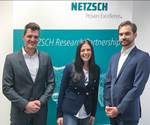Swinburne receives grant to develop graduates for automotive industry
The grant will fund nine research projects focused on boosting innovation, skills and employment in Australia’s automotive industry.
Researchers at Swinburne University of Technology (Melbourne, Australia) have received a competitive grant of more than $990,000 to fund nine research projects focused on boosting innovation, skills and employment in Australia’s automotive industry.
Of the seven universities awarded funding by the federal government, Swinburne received the highest grant. The funding is part of the Automotive Engineering Graduate Program, designed to help Australian automotive businesses grow, improve productivity and increase the pipeline of high-quality graduate engineers into the sector.
Swinburne’s application integrates a range of industry-engaged research and development projects on the safety, lightweighting, durability, reliability and recycling of vehicle components. Projects will take place at Swinburne’s Hawthorn campus or onsite with industry partners across the value chain.
The research projects are said to address the capabilities needed to meet future challenges for safe, sustainable and affordable zero-emission mobility, in an effort to compete in the global race for electric vehicles, digitalization, autonomous driving and connected vehicles. As part of the program, Swinburne post-graduate students will undertake the design, simulation, prototyping, testing and model correlation work required for each of the research projects, together with industry partners and academic supervisors in the Department of Mechanical Engineering and Product Design.
“Through this research, the students will help transform the industry for new generations of products. It’s important we have quality graduate engineers who are experienced to meet the challenges that are ahead for the automotive industry,” says Guoxing Lu, project lead and chair of the department of mechanical engineering and product design engineering. “Our team is excited and encouraged with the success of this grant and greatly value this opportunity to make an impact on future automotive technologies.”
“[The grant] will establish a global hub for engineering, design and development of future vehicle technologies. We aim to create new knowledge and skills locally to help companies access global automotive value chains leading to new jobs in Australia,” says Aleksandar Subic, deputy vice-chancellor of research and development.
Karen Andrews, minister for industry, science and technology, says the grants will help more than 107 post-graduate engineers work on industry-based automotive projects around Australia. “It will develop engineers with the skills and experience our automotive industry needs and will support projects which will grow our economy and create Australian jobs,” she says.
Read about Swinburne’s recent composites research partnership with NETZSCH Analyzing and Testing Lab.
Related Content
-
New online training course targets prepreg basics
JEC World 2024: Composites Expert highlights how its E-Learning Composites Academy platform supports flexible industry learning with new courses developed with Stelia Aerospace North America.
-
Altair, NIAR sign MOU to build aerospace innovation space
Collaboration will expand digital twin adoption, empower aerospace startups and speed up product development and certification processes.
-
FACC Academy begins training, onboarding operations
FACC’s newly launched training platform will address skilled aerospace worker shortages head on, offering more than 250 specialized training courses for its entire workforce.
.jpg;width=70;height=70;mode=crop)





